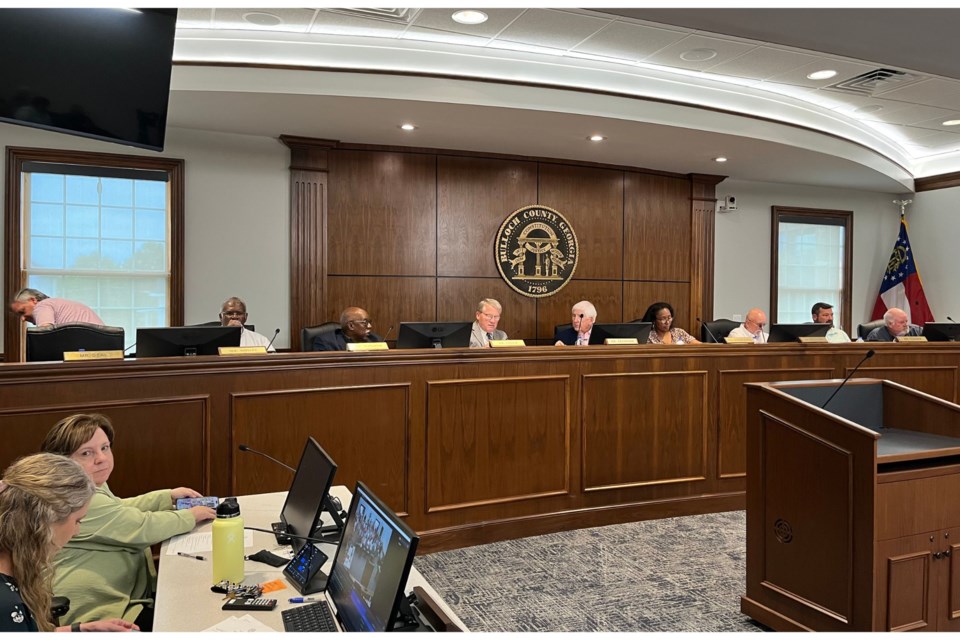After postponing the vote on Tuesday, Bulloch County Commissioners voted on Thursday, June 27, 2024 to approve the intergovernmental agreement between Bulloch County and Bryan County to provide water and sewer services and a well mitigation fund program.
The vote came after a two hour meeting where 23 citizens pleaded passionately with the Commissioners to Vote no or table both items.
After all of the citizens had spoken, Commission Chairman Roy Thompson called for the vote. Both passed by a 4 to 2 vote with Commissioners Jappy Stringer and Commissioners Toby Conner voting no.
Presentation
At the beginning of the meeting Tom Couch, Bulloch County Manager made a presentation giving an overview of the two agenda items.
The following is a summary of County Manager Couch's presentation.
Couch began by saying that Bryan County Commissioners had voted to approve both of the items.
On June 12, 2024, representatives from Bulloch and Bryan County had a meeting with the GA EPD to discuss the draft groundwater permits and probable special conditions.
Since public meeting with the EPD in February they were told that the EPD received and reviewed approximately 22,000 comments which has primarily caused the delay in issuing the draft permits. The EPD now plans to release the draft permits in the next few days. For this reason, both Bulloch and Bryan County needed to have the MOU's in place prior to the draft permits being issued for a variety of reasons.
Since March, we have finalized the revisions of the intergovernmental agreement and the Memorandum of Understanding. It's crucial to approve the agreement before the EPD issues the draft or final permits. This alignment ensures compliance with EPD standards, prevents future conflicts, and is essential for performance.
The key points of the agreement include the following:
- Bulloch County can use 350,000 gallons per day for a public water system, serving approximately five to seven subdivisions. The final decision is pending.
- Bulloch County will be reimbursed nearly $250,000 for wellsite acquisition for the two wells.
- Bryan County will cover up to $21,000 per month for routine operations and maintenance for the first five years, with a possible five-year extension.
- Compensation will start at a wholesale rate of $1 per 1,000 gallons, increasing to $1.25 after five years, with a 2.5% annual increase thereafter.
Couch said it's important to distinguish between wholesale and retail rates. Wholesale rates, typically about 50 cents per 1,000 gallons, are for providing water to Bryan County with minimal maintenance. Retail rates, charged to residential, commercial, and industrial customers, include additional maintenance costs.
By 2028, the county's estimated annual revenue from this agreement is about $3 million. If Bulloch County decides to establish a water and sewer utility, sewer service could be provided from the new Bryan County wastewater plant.
The Memorandum of Understanding (MOU) aims to create a well mitigation program and start planning for an alternative water supply. Similar to the Savannah Harbor Expansion Project this planning and engineering could take up to 15 years. Though the EPD allows for 25 years. The MOU forms the basis for a future intergovernmental agreement.
Approving the intergovernmental agreement offers substantial revenue potential and future utility options. Not approving it risks losing control over $30 million worth of infrastructure assets and future revenue. The MOU demonstrates a commitment to establishing a well mitigation program, satisfying the EPD, and securing funding.
"In conclusion, the wells will be constructed regardless of Bulloch County's influence, as Hyundai needs water. Establishing a utility district is optional, and I have no personal or professional stake in this decision. The EPD special conditions are unlikely to change dramatically," said Couch. "Your decision tonight will determine if Bulloch County wants to lead in this matter and if the financial benefits outweigh the costs."
Commissioner Timmy Rushing asked if regardless of the County's action tonight did he think the wells would be drilled. Couch replied, " Yes, they will. Hyundai needs water, and the state will provide it from Bryan County's allocation. If the intergovernmental agreement is not approved, Bryan County or the state will proceed to construct the wells in whatever ways necessary including eminent domain."
Commissioner Toby Conner asked if there was any other wells currently in Bulloch County providing water for other cities. Couch replied, "As for other bordering cities: Pembroke has an agreement with Bulloch County for water, with no current terms of compensation. If Pembroke increases its capacity, terms of compensation can be introduced. There are no other current agreements with bordering cities."
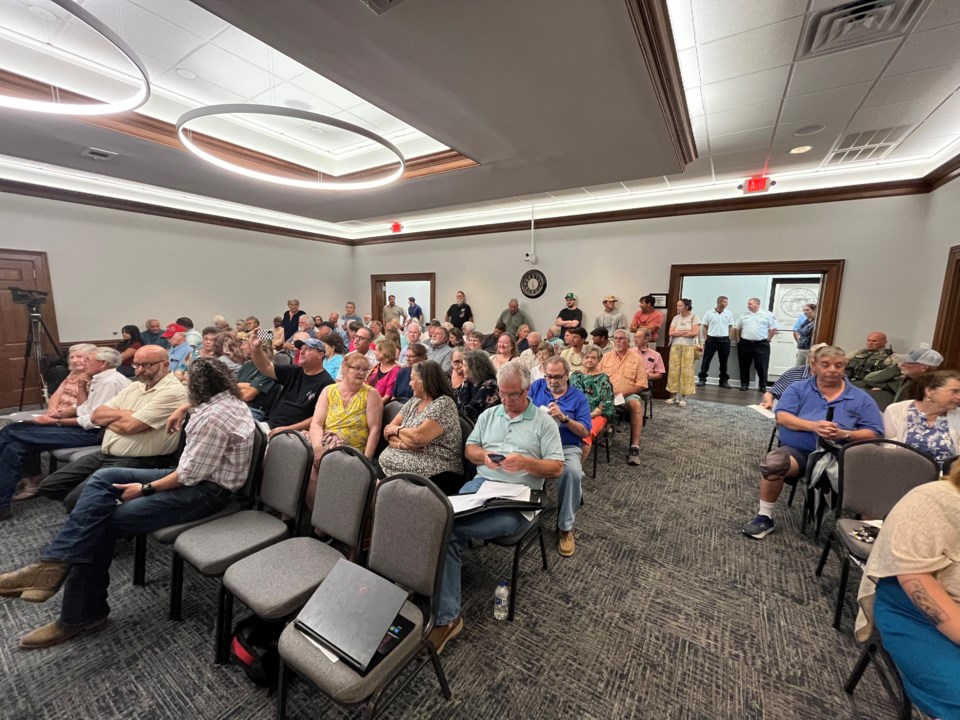
PUBLIC COMMENTS
We have put together a summary of the topics of concerns from the citizens who spoke. At the bottom of this story is access to the live stream of the meeting.
23 citizens voiced their concerns regarding the proposed drilling of wells, specifically those outside the designated five-mile radius for water access. The primary issues raised revolved around the potential depletion of the local aquifer, the impact on agricultural operations, and the inadequacy of the proposed water mitigation plan.
Water Depletion Concerns
The discussion was initiated by a citizen who questioned what measures would be taken if wells beyond the five-mile radius went dry. This initial concern set the tone for the meeting, with many others echoing the fear of water scarcity. Farmers, in particular, were vocal about their reliance on existing wells for irrigation and the survival of their crops. Will Anderson, a local farmer, emphasized the dire consequences of a drought similar to the one experienced between 1998 and 2002, which severely crippled crop yields due to insufficient rainfall.
Anderson pointed out that during that drought, the Environmental Protection Division (EPD) had restricted the drilling of new deep wells, a precaution that underscored the severity of the situation. He stressed that while recent years have seen adequate rainfall, the community must prepare for the possibility of future droughts. He questioned the Commission’s preparedness to support farmers with deep wells outside the five-mile radius if they went dry, highlighting the high costs and regulatory hurdles associated with drilling deeper wells.
Economic and Legal Implications
The economic implications of the proposed wells were another major concern. Anderson noted that the cost of drilling and maintaining deep wells, which could reach depths of 500 to 600 feet or more, is substantial. He expressed skepticism about the availability of sufficient funds to support farmers who might need to deepen their wells, especially if the Hyundai plant, a significant new industry requiring considerable water resources, was given priority for water permits.
Bulloch County Chair Elect, David Bennett, articulated fears about the financial burden on Bulloch County taxpayers. He criticized the proposed water mitigation agreement with Bryan County, describing it as a near-verbatim copy of a draft by the EPD, which failed to incorporate public feedback or provide clear, actionable details. Bennett questioned the funding sources for the mitigation plan, sarcastically asking if the county intended to rely on "bake sales and bikini car washes" to finance it. He warned that without a well-defined plan, the county could face significant financial liabilities and potential lawsuits from affected farmers and residents.
Call for Comprehensive Planning and Transparency
Throughout the meeting, there was a recurring call for more comprehensive planning and greater transparency. Clayton Anderson, another local farmer, echoed Will Anderson’s concerns and urged the Commission to delay the drilling plans until a more robust and detailed mitigation strategy was developed. He and other citizens emphasized the need for a plan that clearly outlines the criteria for eligible applicants, funding sources, and the process for obtaining water mitigation funds.
Bennett also highlighted the lack of communication from the EPD since a public water meeting held in February, pointing out that the Commission had not received any further guidance. He stressed that proceeding with the current mitigation plan without EPD feedback would be premature and potentially disastrous.
Environmental and Community Impact
The environmental impact of the proposed wells was another critical issue. Citizens expressed fears that drilling could lower the Floridan aquifer, adversely affecting the entire community’s water supply. The potential long-term environmental consequences, including the sustainability of local water resources, were a significant concern.
Bennett concluded by addressing rumors that the state government was pressuring the county to approve the wells, threatening that the state would proceed regardless. He urged the Commission to stand up against such pressures and ensure that any decisions made were in the best interests of Bulloch County residents.
In summary, the Bulloch County Commission meeting highlighted deep-rooted concerns about the proposed well drilling project. Citizens called for a halt to the plans until a comprehensive, transparent, and well-funded water mitigation strategy could be developed. The community's primary concerns included the potential depletion of the local aquifer, the economic burden on farmers and taxpayers, the lack of detailed planning, and the long-term environmental impact. The meeting underscored the need for the Commission to balance the well-being of local residents and ensure sustainable water management practices amid growing industrial demands.
NEW BUSINESS
APPROVED - 1. Motion to Approve an Intergovernmental Agreement between Bulloch County and Bryan County to Provide Water and Sewer Services
This IGA enables Bulloch and Bryan County to provide water and sewer services to each other according to negotiated terms and conditions. No Amendment is requested at this time. Outside funding will be budgeted when the framework and plan are in place.
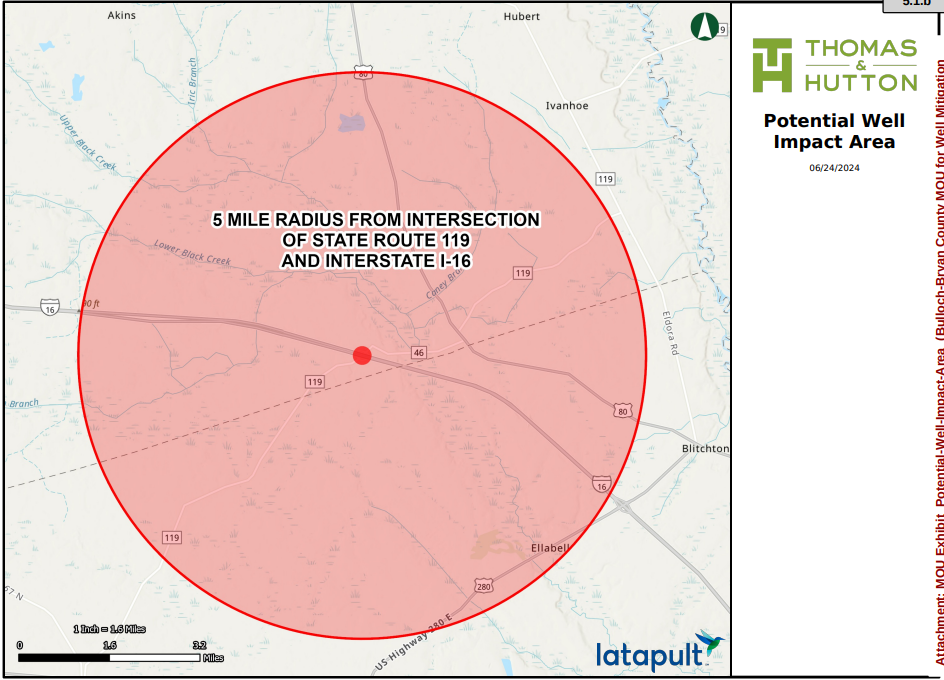
APPROVED - 2. Motion to Approve a Memorandum of Understanding for a Well Mitigation Program between Bulloch County and Bryan County.
This MOU enables Bulloch and Bryan County to establish a well mitigation program to establish a framework and a plan that meets the requirements of the Georgia Environmental Protection Division. No Amendment is requested at this time. Outside funding will be budgeted when the framework and plan is in place.
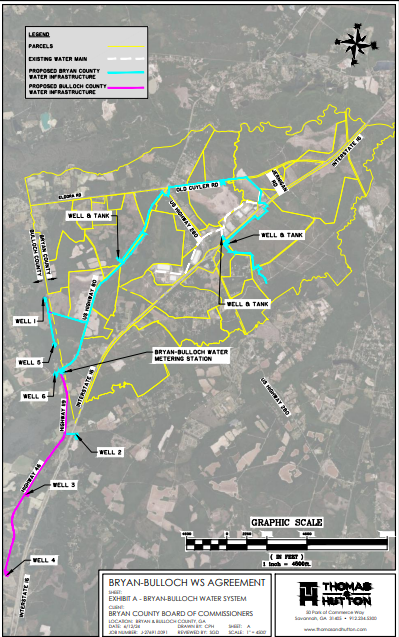
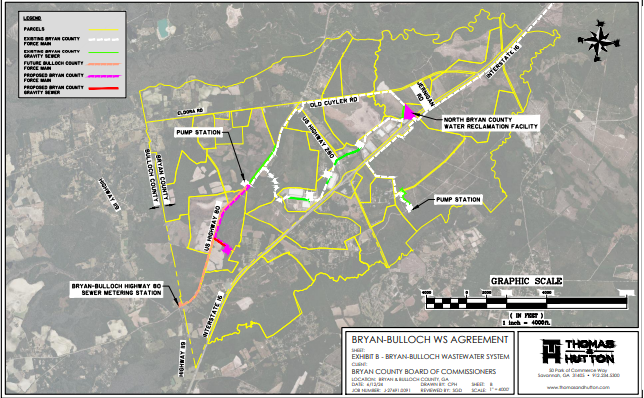
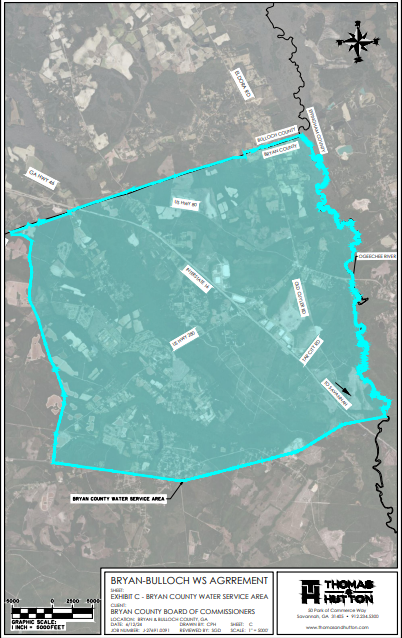
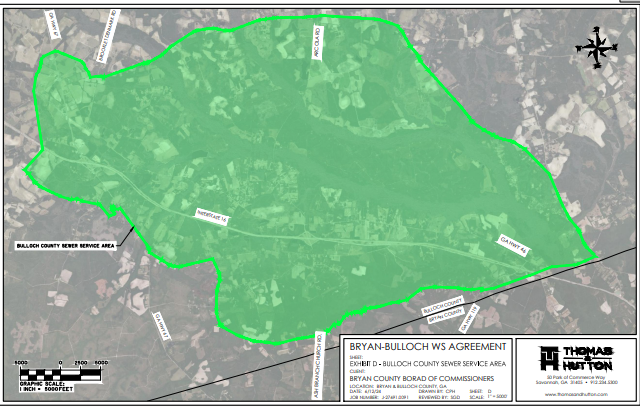
COMMISSION AND STAFF COMMENTS
There were no additional comments.
Click Here to View the MOU's and other meeting documents
Live Stream of Meeting

